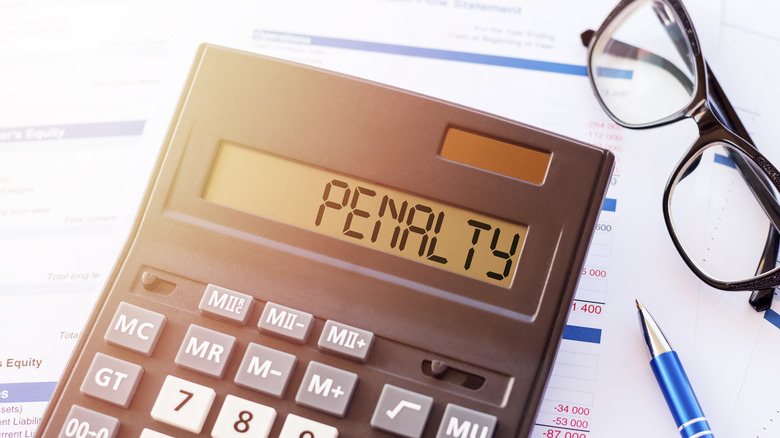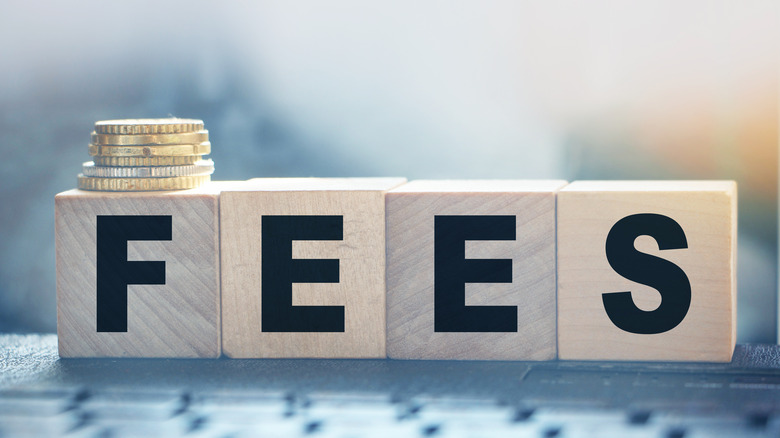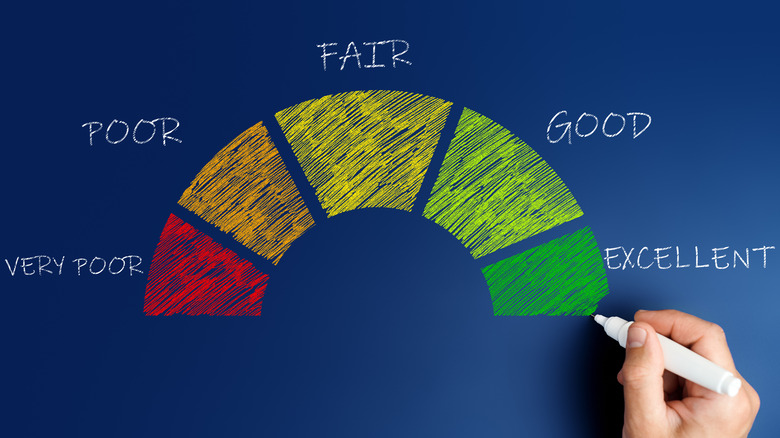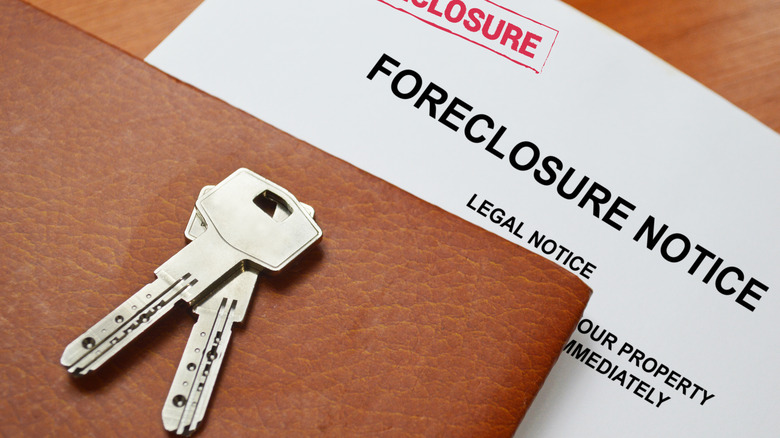What Happens If You Miss A Mortgage Payment
Mortgage payments are a natural part of modern American life. The shift from renter to homeowner comes with a change in the who and what of your monthly living expenses, but the obligation remains a part of your ongoing budgetary considerations. Instead of paying a landlord for the use of their property, your mortgage payments go toward buying back equity in the home that you live in from the bank — or another financial institution that created the loan.
Yet, in all budgeting environments, the ends won't always meet. Some months are harder than others, with emergency spending needs taking center stage at what turn out to often be the worst possible moments. The Ascent notes that missing a mortgage payment may come with less substantial consequences in the short term than other bills. Still, the ramifications are indeed significant and should be avoided at all if possible.
For one thing, missing a payment is always bad for your credit. Lenders report to credit bureaus on a regular basis regarding the status of accounts in all of their borrowers' names — including yours. So if you miss a payment, this will be reflected in your credit scoring, and negative information affects your credit score for seven years, sometimes longer (via Equifax). There are a few outcomes to be aware of when missing payments on your mortgage. They range in severity based on the number of times this has occurred.
Assessed late fees
The first and most immediate effect you need to be wary of is the addition of late fees to your total bill (via The Ascent). Sometimes, missing a payment may be unavoidable, but if you fail to make it, your next one will likely be inflated by this tacked-on fee. Late fees are a standard part of any lending agreement and may be large or small. Regardless, a late fee inflates the amount you owe and squeezes other parts of your budget. If you can't afford your payment this month, it will make it much harder to muster the next month's contribution together.
Late fees are the tip of the iceberg when it comes to consequences stemming from a missed payment. They are a painful reminder of the fiscal responsibility you took when purchasing the home and taking out a mortgage. Maintaining a current schedule of installments is essential to keeping your options open for new lines of credit, refinancing, and other aspects of routine financial life.
According to The Ascent, you'll likely see a late fee after a few days — but perhaps not if you pay the bill a day or two late. If you do pay the invoice, albeit late, you might only be assessed this fee without your lender reporting the tardiness to the credit bureaus, according to Equifax. This is the best-case scenario because it affects only your wallet while keeping your credit report unscathed.
Credit report damage
Missing a payment altogether will damage your credit report, though. If you fail to make a payment to your lender, they will eventually report this event to credit bureaus, adversely affecting your credit score for many years to come. Equifax notes that some lenders won't report late payments for as many as 60 days, meaning the window to remedy the discrepancy is wide enough to make budgetary adjustments and get the problem under control.
But, one piece of advice that's always front and center is the importance of clarity and conversation. If you are experiencing financial trouble, the best course of action is to speak with your lender about the issues you are facing. Late payment may be inevitable in a month when you encounter some setbacks, including a visit to the emergency room with a child, a car accident, a flat tire, or any other issues. Missing one payment won't spell immediate disaster; however, it can signify further trouble looming on the horizon.
Speaking with your lender about any difficulties that are affecting your ability to repay your loan (either for a single month or over the foreseeable future, as might be the case with the loss of a job) will help you gain a clear path to rectifying the situation, the U.S. Consumer Financial Protection Bureau explains. Damage to your credit history may be imminent, but there are steps you can take to avoid this long-term issue altogether or minimize the impact.
Foreclosure, the worst-case scenario
Missing more than one payment may initiate foreclosure proceedings. Of course, a single late payment won't trigger this outcome. Still, multiple missed payments or chronic lateness, incomplete payments, and other trouble in servicing the loan can result in a property loss altogether.
Foreclosure is often avoidable for homeowners who open up a dialogue with their lender early in the arc of fiscal danger. In addition, speaking to your lender can give you access to alternatives, which is a significant hassle for the lender and immensely damaging to your personal consumer capacity.
A short sale, for instance, is a great way to do an end-run around the looming prospect of foreclosure. In this instance, a homeowner can sell the house — for a loss — to make up most of the remaining balance on their mortgage. This gives homeowners a way to avert the seizure of their property through foreclosure and the credit stain that it brings (via Experian).
Foreclosure puts you in a bad position for several reasons. For one thing, you'll lose the home; your place to live. But it also affects your credit and financial stability. If you lose your house, you won't enjoy the financial boost that selling the property brings — allowing you capital resources to purchase a new property. Starting over on the path to building up cash for a down payment can be deflating. Likewise, your credit score takes a hit, making borrowing more complicated as well.



